"Dear Child" starring Qin Hao and Ren Suxi is adapted from "Left and Right" directed by Wang Xiaoshuai and won the Best Screenplay Award at the Berlin Film Festival. The film tells the story of a divorced middle-aged couple whose daughter is suffering from leukemia. They plan to have another child and use the newborn's umbilical cord blood to save the daughter. At this time, the middle-aged couples have their own families, artificial insemination failed, they plan to go into battle in person, but at this time they also have to face the ethical test... 
As soon as they came up, the couple, named Xiao Lu (played by Qin Hao) and Fang Yinuo (played by Ren Suxi), were about to become parents. Fang Yinuo, who was pregnant in October, gave birth. After that, the new parents were in a hurry to bring the baby; Fang Yinuo's mother-in-law and mother were both rushing to bring the baby, so there were conflicts between mother-in-law and daughter-in-law, mother-in-law and mother, and Xiao Lu, who was wrapped in family conflicts, became confused after drinking sex, which leads to the breakdown of the marriage...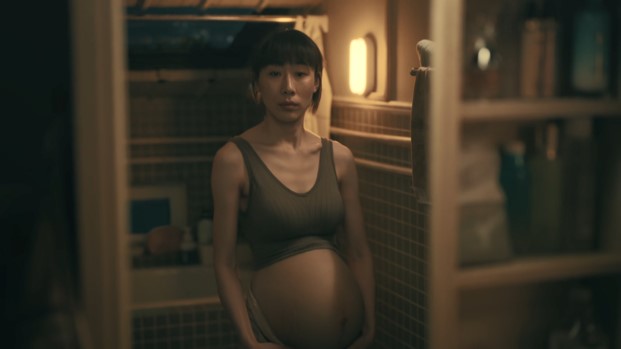
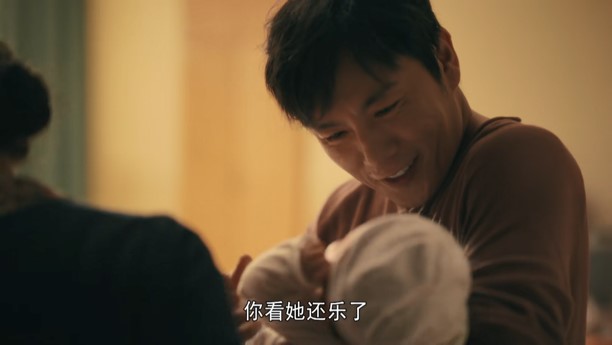
In other words, the episode is about halfway into the movie's plot. Prior to this, the focus of "Dear Child" was to present a woman's sufferings of childbirth and childbearing, as well as the sacrifices and sacrifices of a woman to become a mother. Xiao Lu mainly appeared in the image of being incompetent and careless.
For this reason, netizens are arguing. Most female viewers praised the show, believing that it finally paid attention to the plight of women; there were also voices that "Dear Child" was selling anxiety, with a depressing tone all over it, too sad and too depressing.
Is 'Dear Child' Really Selling Anxiety?
In fact, in the female-oriented era, it is not uncommon for film and television dramas to present the dilemma of female fertility, but "Dear Child" is one of the few that can resonate with the group. The root cause is that many creators put the theme first, the topic first, lack of detail support, and can't see the texture of life; in contrast, "Dear Child" is much more solid and delicate. It does not transmit ideas through the output of large paragraphs of lines, but through universal and real details of life, it presents the various injustices that women encounter in the process of childbirth, and exposes the selfishness of some men that they do not know. , poking straight at the sore spot of men.
For example, there are two small details of the couple eating noodles in the play. One is the opening chapter. Fang Yinuo, who was pregnant for ten months, suddenly wanted to eat chili noodles. Xiao Lu went to buy it. Nuo is that pregnant women are not good at eating spicy food - although Fang Yinuo just wanted to eat a bowl of chili noodles. Packing one more, the euphemistic name is to accompany the wife to eat, in fact, he has already eaten.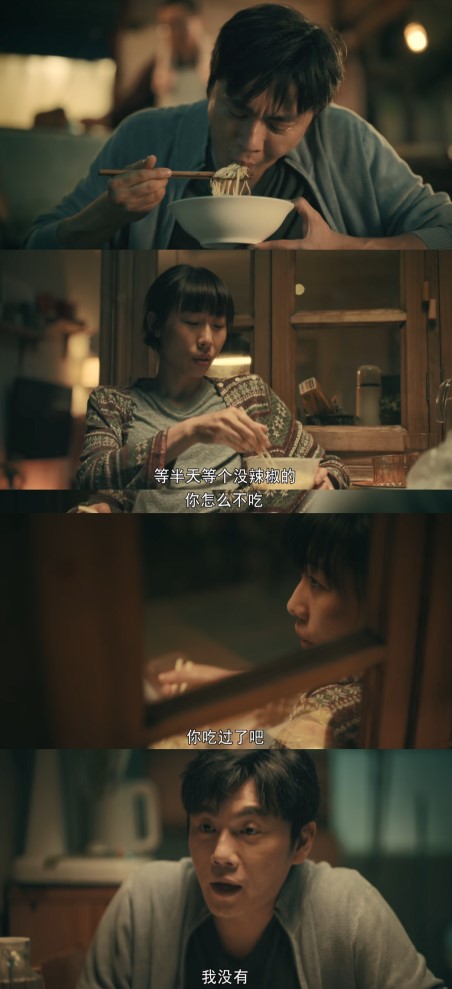
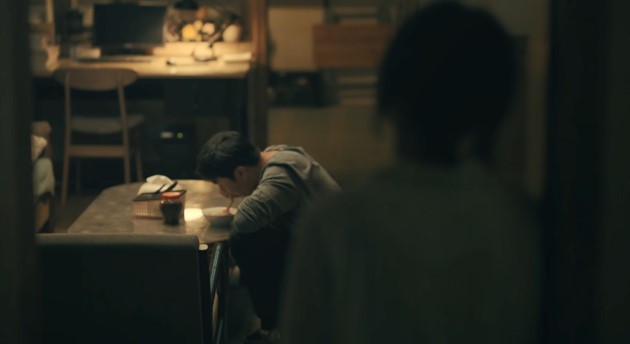
Corresponding to eating noodles, the details of drinking water in two places also confirm this. After giving birth, Fang Yinuo was very thirsty and wanted to drink a glass of water. The mother-in-law, brother-in-law and others in the ward focused on the child. Only when the mother came in did they find out that Fang Yinuo wanted to drink water.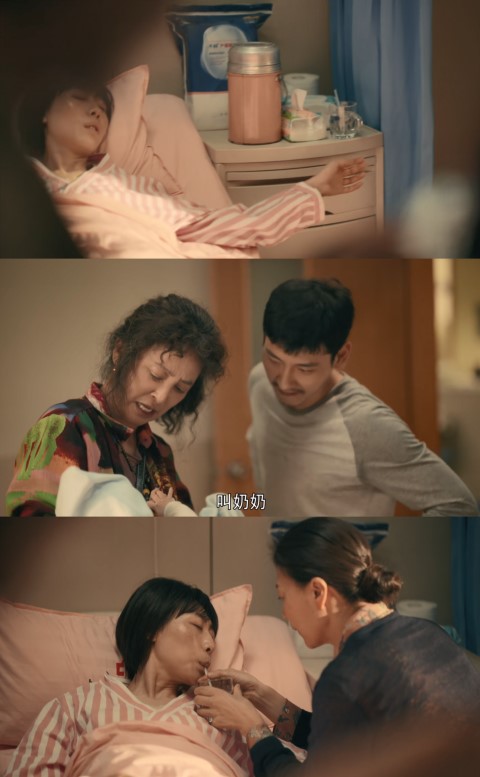
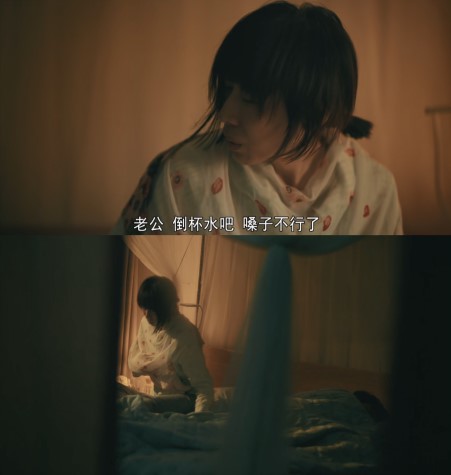
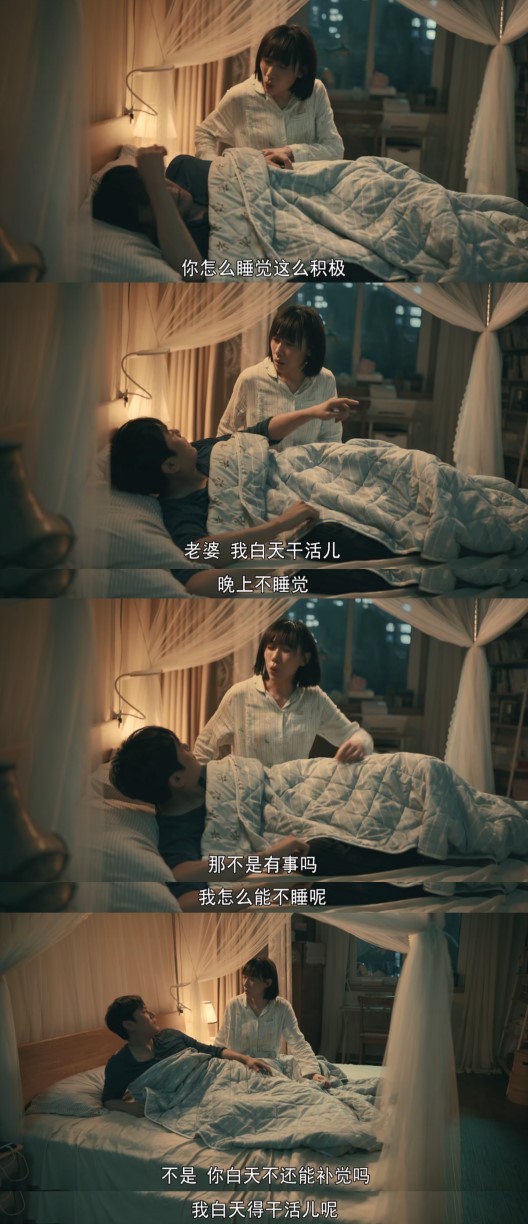
After the maternity leave ended, Fang Yinuo had to work during the day, and at night when her daughter was awake, Fang Yinuo was also taking care of her. Insufficient sleep will really collapse, and there is such a scene: in the middle of the night, her daughter woke up, Fang Yinuo was woken up, and she had to be patient and slowly coaxing the baby.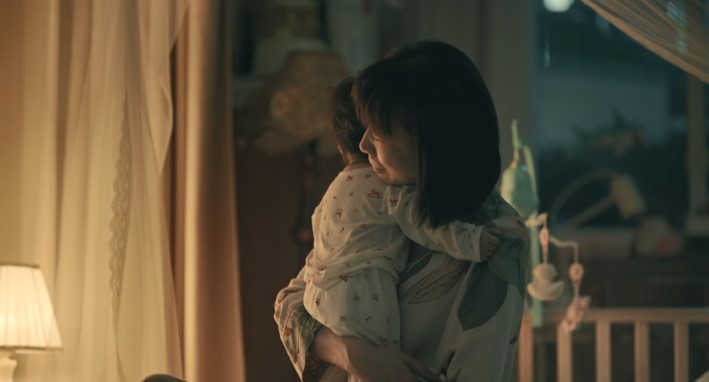
Some viewers put a hat on "Dear Child" for this reason, thinking that it is exaggerating anxiety and will lead to "fear of marriage and childbirth" and so on. In reality, however, some manifestations of anxiety are necessary and valuable, not to mention that they have been ignored for so long—we expose not too much, but too little. Those who are in the whirlpool are obliged to say what the whirlpool looks like. "Dear Child" bravely said it, but some people want to blame it for destroying the "reality of reality" - that is because it is not him who is in the whirlpool.
Telling the whirlpool and not shunning the heavy side of reality, women will be more psychologically prepared; if men are really afraid that women will not get married and infertile in the future, the antidote is on them, not on women: if men If we can share more and give more care and care to women, women's willingness to bear children can be improved. Not willing to pay, but also asking women to get married and have children, this kind of talk does not work now.
But also see that "Dear Child" is not perfect. In individual plots, forcibly creating dramatic conflicts, stacking various extreme situations on Fang Yinuo, making Fang Yinuo only worry about the whole process of childbirth, and hardly showing the happiness brought by parenting, which is unobjective.
The drama also creates a suffocating sense of depression by using some common parenting scenes such as vaccination and sudden fever in children. Getting a vaccine, the three adults are like fighting a war; the child was sent to the hospital with a fever, and he had to catch the heavy rain, but he couldn't get a car, and Fang Yinuo's mother fell with the child in his arms...
The extreme handling of the plot does not reveal any profound phenomena, but only makes the audience feel the overwhelming depression, which brings the opposite effect-not only does the plot appear to be "fabricated", but also detracts from the details of creating a sense of reality. Attentive, but also let the audience watch the heart block, the lack of emotional outlet.
In the portrayal of Fang Yinuo, "Dear Child" also lost a little restraint, and even some audiences (even female audiences), although they could understand Fang Yinuo's difficulties in parenting, also felt that some of her behaviors were too sensitive and extreme, Her approach to problems is too self-centered. If it is said that she is postpartum depression, the show should also explain, but it is not. When Ren Suxi analyzed Fang Yinuo in the interview, she bluntly said that Fang Yinuo "The shortcomings of this person are too obvious, this person is so unreasonable, he wants to win, and he wants to occupy a high ground in a certain event." .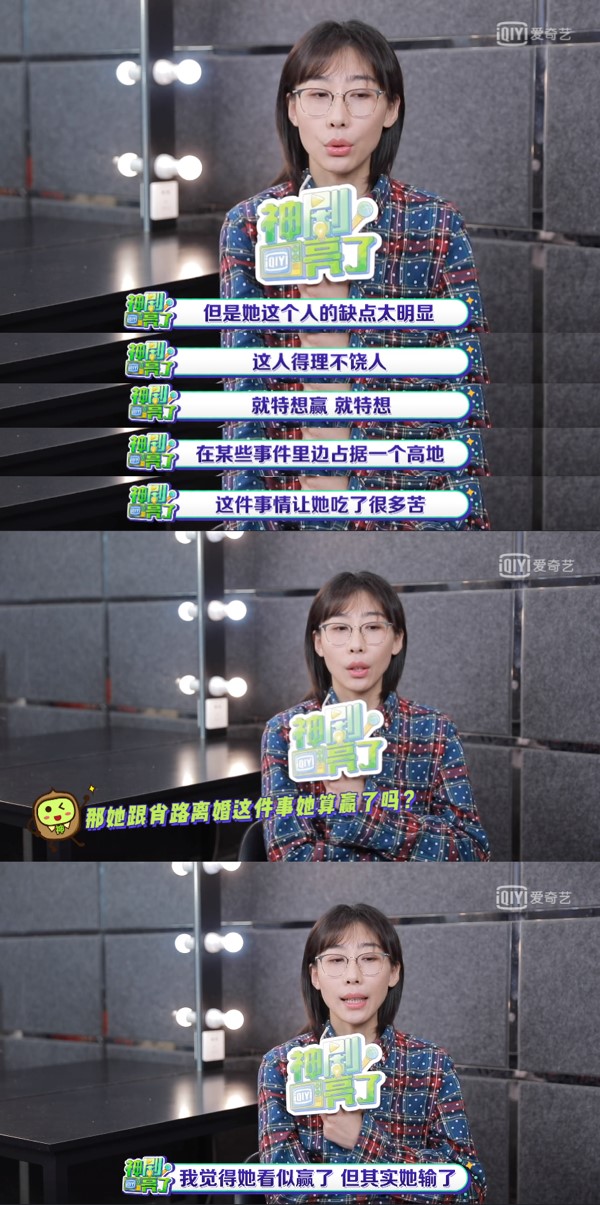
Later, Xiao Lu derailed, Fang Yinuo broke his wrist, and the audience could empathize with her decision. But after the divorce, she also hosted a table banquet, invited a group of friends over, and told Xiao Lu face to face: Daughter, don't want to see you again. Xiao Lu said that he was the father of the child and had the right to see him, but Fang Yinuo said it didn't count. Fang Yinuo said threateningly and sneered: "Try it, try it to see if what I said counts, try it to see if you can see her."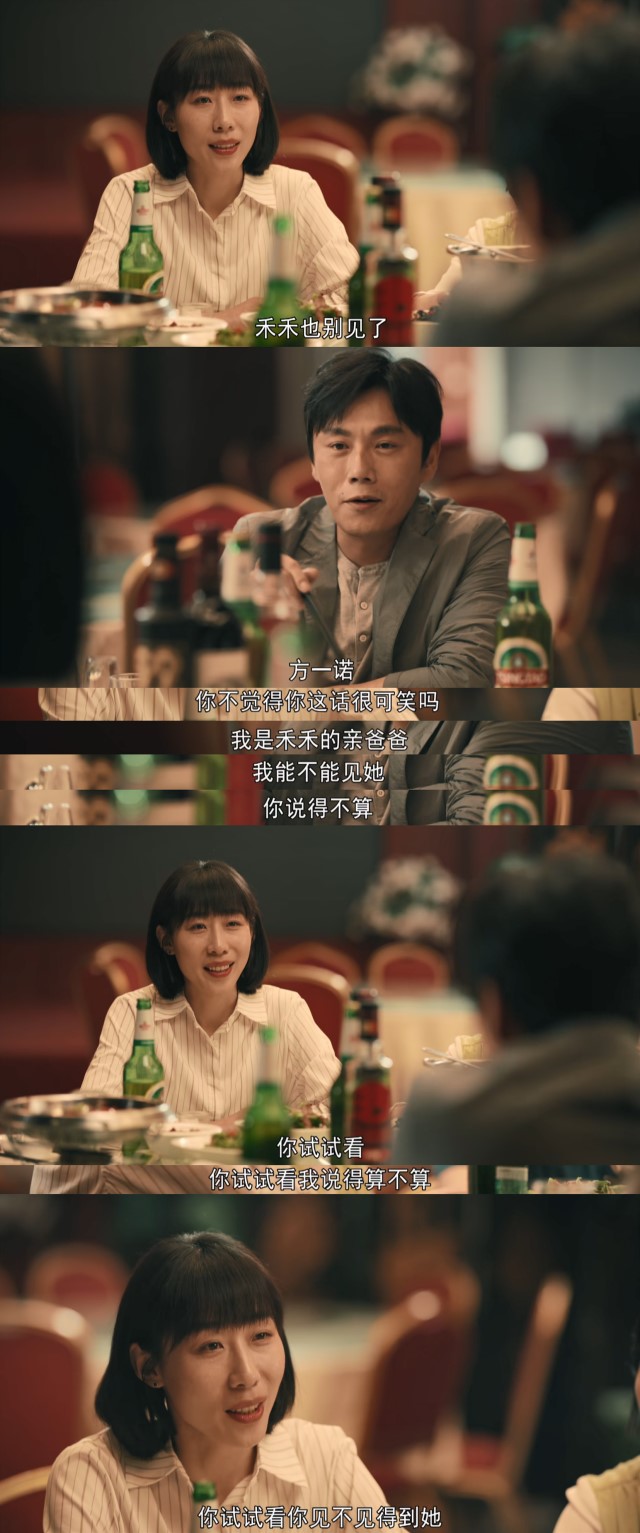
The revelation of the plight of women in "Dear Child" has its value and significance, and there is no such thing as "trafficking anxiety". But as far as the female character Fang Yinuo is concerned, the screenwriter amplifies her extremes, making this great mother too sensitive and only strong in the early stage, which is a pity. But it's a show worth watching anyway -- especially for fellow men, who, as vested interests, have an obligation to pull out those in the swirl.

"Dear Child" poster
The drama version has 34 episodes, except that the core setting is similar to the movie, it expands on the basis of the movie and continues to write its "prequel".As soon as they came up, the couple, named Xiao Lu (played by Qin Hao) and Fang Yinuo (played by Ren Suxi), were about to become parents. Fang Yinuo, who was pregnant in October, gave birth. After that, the new parents were in a hurry to bring the baby; Fang Yinuo's mother-in-law and mother were both rushing to bring the baby, so there were conflicts between mother-in-law and daughter-in-law, mother-in-law and mother, and Xiao Lu, who was wrapped in family conflicts, became confused after drinking sex, which leads to the breakdown of the marriage...

Fang Yinuo (Ren Suxi)

Xiao Lu (Qin Hao)
Then a few years passed, Fang Yinuo and Xie Tianhua (Nie Yuan), Xiao Lu and Dong Fan (Xie Keyin) each established a new family. When both parties thought life was about to get on track, Xiao Lu and Fang Yinuo's daughter was diagnosed with leukemia...In other words, the episode is about halfway into the movie's plot. Prior to this, the focus of "Dear Child" was to present a woman's sufferings of childbirth and childbearing, as well as the sacrifices and sacrifices of a woman to become a mother. Xiao Lu mainly appeared in the image of being incompetent and careless.
For this reason, netizens are arguing. Most female viewers praised the show, believing that it finally paid attention to the plight of women; there were also voices that "Dear Child" was selling anxiety, with a depressing tone all over it, too sad and too depressing.
Is 'Dear Child' Really Selling Anxiety?
In fact, in the female-oriented era, it is not uncommon for film and television dramas to present the dilemma of female fertility, but "Dear Child" is one of the few that can resonate with the group. The root cause is that many creators put the theme first, the topic first, lack of detail support, and can't see the texture of life; in contrast, "Dear Child" is much more solid and delicate. It does not transmit ideas through the output of large paragraphs of lines, but through universal and real details of life, it presents the various injustices that women encounter in the process of childbirth, and exposes the selfishness of some men that they do not know. , poking straight at the sore spot of men.
For example, there are two small details of the couple eating noodles in the play. One is the opening chapter. Fang Yinuo, who was pregnant for ten months, suddenly wanted to eat chili noodles. Xiao Lu went to buy it. Nuo is that pregnant women are not good at eating spicy food - although Fang Yinuo just wanted to eat a bowl of chili noodles. Packing one more, the euphemistic name is to accompany the wife to eat, in fact, he has already eaten.

Xiao Lu clearly ate a bowl of chili noodles first
After Fang Yinuo gave birth, because of the conflict with Yuesao's parenting concept, Yuesao ran away and Fang Yinuo was left unattended, so Xiao Lu served Fang Yinuo noodles. After eating two bites, Fang Yinuo felt that it was not salty enough, so he put some chili peppers, and accidentally choked on it, so he went to the toilet first. Xiao Lu asked if he wanted to order a takeaway, Fang Yinuo said no, he wasn't hungry anyway. When Fang Yinuo came back from the toilet, Xiao Lu had already devoured her bowl of noodles.
Xiao Lu really took care of his mouth tightly
Someone on the barrage has always said that Xiao Lu is a "good man", and "Dear Child" said with such small details that are easily overlooked: Even men who seem to be good to their wives are negligent in many details. Yes, they think of themselves first. Fang Yinuo was pregnant for ten months, and Xiao Lu was unwilling to share the "hardship" of not eating chili with his wife; his wife who was confinement and needed nutrition said, "I'm not hungry," and he logically thought that he was not hungry. You don't need to eat it, you just eat and finish the noodles... Now that things are so abundant, many women who give birth are not lacking in food and drink. What is lacking is meticulous care and gentle understanding.Corresponding to eating noodles, the details of drinking water in two places also confirm this. After giving birth, Fang Yinuo was very thirsty and wanted to drink a glass of water. The mother-in-law, brother-in-law and others in the ward focused on the child. Only when the mother came in did they find out that Fang Yinuo wanted to drink water.

Drinking water depends on my mother
At night, Fang Yinuo was feeding night milk, and Xiao Lu, who was beside him, slept very deeply. Fang Yinuo's throat was dry and wanted to drink water, but she couldn't call Xiao Lu. In the end, Yuesao poured her a glass of warm water.
Xiao Lu slept soundly
There is also the typical problem of bringing a baby in the middle of the night. The baby needs to be breastfed in the middle of the night and often wakes up. Who is willing to sacrifice sleep? In "Dear Child", Fang Yinuo sacrificed sleep. Xiao Lu slept the earliest, and slept very deadly. The reason was, "Can't you catch up on sleep during the day? I have to work during the day." Fang Yinuo said, "I didn't make up, I kept my eyes open." Xiao Lu will only rotten, "Okay, then I was wrong, I can't survive you, I'll take it."
Xiao Lu thinks that Fang Yinuo can make up for sleep during the day, so he has to take care of the baby at night, as if he doesn't need to bring the baby during the day
So he still sleeps with him. His wife changes diapers and breastfeeds in the middle of the night. He will only verbally say that you have worked hard, wife, and then continue to sleep with him. Later, when he could hide in the car after get off work, he would hide in the car, and if he could not come back at night, he would not come back.After the maternity leave ended, Fang Yinuo had to work during the day, and at night when her daughter was awake, Fang Yinuo was also taking care of her. Insufficient sleep will really collapse, and there is such a scene: in the middle of the night, her daughter woke up, Fang Yinuo was woken up, and she had to be patient and slowly coaxing the baby.

A child's waking up in the middle of the night can sometimes really make adults emotionally devastated
All parents who have been deeply involved in parenting and drag their children up with shit and urine can all feel the same way about these details in "Dear Child". "Dear Child" doesn't shout all kinds of big slogans, and it doesn't complain loudly. It lays out facts and highlights details, and exposes the "masks" of men who think they are good-you just feel good about yourself, and women pay more for fertility. More, bear more.Some viewers put a hat on "Dear Child" for this reason, thinking that it is exaggerating anxiety and will lead to "fear of marriage and childbirth" and so on. In reality, however, some manifestations of anxiety are necessary and valuable, not to mention that they have been ignored for so long—we expose not too much, but too little. Those who are in the whirlpool are obliged to say what the whirlpool looks like. "Dear Child" bravely said it, but some people want to blame it for destroying the "reality of reality" - that is because it is not him who is in the whirlpool.
Telling the whirlpool and not shunning the heavy side of reality, women will be more psychologically prepared; if men are really afraid that women will not get married and infertile in the future, the antidote is on them, not on women: if men If we can share more and give more care and care to women, women's willingness to bear children can be improved. Not willing to pay, but also asking women to get married and have children, this kind of talk does not work now.
But also see that "Dear Child" is not perfect. In individual plots, forcibly creating dramatic conflicts, stacking various extreme situations on Fang Yinuo, making Fang Yinuo only worry about the whole process of childbirth, and hardly showing the happiness brought by parenting, which is unobjective.
The drama also creates a suffocating sense of depression by using some common parenting scenes such as vaccination and sudden fever in children. Getting a vaccine, the three adults are like fighting a war; the child was sent to the hospital with a fever, and he had to catch the heavy rain, but he couldn't get a car, and Fang Yinuo's mother fell with the child in his arms...
The extreme handling of the plot does not reveal any profound phenomena, but only makes the audience feel the overwhelming depression, which brings the opposite effect-not only does the plot appear to be "fabricated", but also detracts from the details of creating a sense of reality. Attentive, but also let the audience watch the heart block, the lack of emotional outlet.
In the portrayal of Fang Yinuo, "Dear Child" also lost a little restraint, and even some audiences (even female audiences), although they could understand Fang Yinuo's difficulties in parenting, also felt that some of her behaviors were too sensitive and extreme, Her approach to problems is too self-centered. If it is said that she is postpartum depression, the show should also explain, but it is not. When Ren Suxi analyzed Fang Yinuo in the interview, she bluntly said that Fang Yinuo "The shortcomings of this person are too obvious, this person is so unreasonable, he wants to win, and he wants to occupy a high ground in a certain event." .

Ren Suxi also agrees that Fang Yinuo is "very imperfect"
For example, there is a conflict between mother-in-law and daughter-in-law. If she does not want her mother-in-law to bring the baby, she must reject it directly; if she does not refuse, she cannot stand some of her mother-in-law's methods of raising the baby, and she is picky about her mother-in-law; the mother-in-law in the play is not completely unreasonable, Fang Yi Nuo and her mother did not let her touch the child. Her mother-in-law kept silently enduring it. Her mother-in-law only complained to Xiao Lu behind her back when she felt unhappy. Knowing that Xiao Lu was difficult, she compromised. On the contrary, Fang Yinuo and her mother had always been friends. unreasonable...Later, Xiao Lu derailed, Fang Yinuo broke his wrist, and the audience could empathize with her decision. But after the divorce, she also hosted a table banquet, invited a group of friends over, and told Xiao Lu face to face: Daughter, don't want to see you again. Xiao Lu said that he was the father of the child and had the right to see him, but Fang Yinuo said it didn't count. Fang Yinuo said threateningly and sneered: "Try it, try it to see if what I said counts, try it to see if you can see her."

It's too extreme to write Fang Yinuo
At this moment, Fang Yinuo really made the audience feel difficult to get close to. Although Xiao Lu is at fault, Fang Yinuo has no right to deprive Xiao Lu of his rights as a father. The screenwriter wanted to pave the way for the follow-up plot: when her daughter suffered from a serious illness, Fang Yinuo told Xiao Lu Yunyun after a psychological test. But from the perspective of characterization, Fang Yinuo is too stubborn, which may make the audience lose their empathy for her, and let some male audiences seize the "handle" and think that Fang Yinuo's character flaw is the source of the contradiction.The revelation of the plight of women in "Dear Child" has its value and significance, and there is no such thing as "trafficking anxiety". But as far as the female character Fang Yinuo is concerned, the screenwriter amplifies her extremes, making this great mother too sensitive and only strong in the early stage, which is a pity. But it's a show worth watching anyway -- especially for fellow men, who, as vested interests, have an obligation to pull out those in the swirl.










Comments